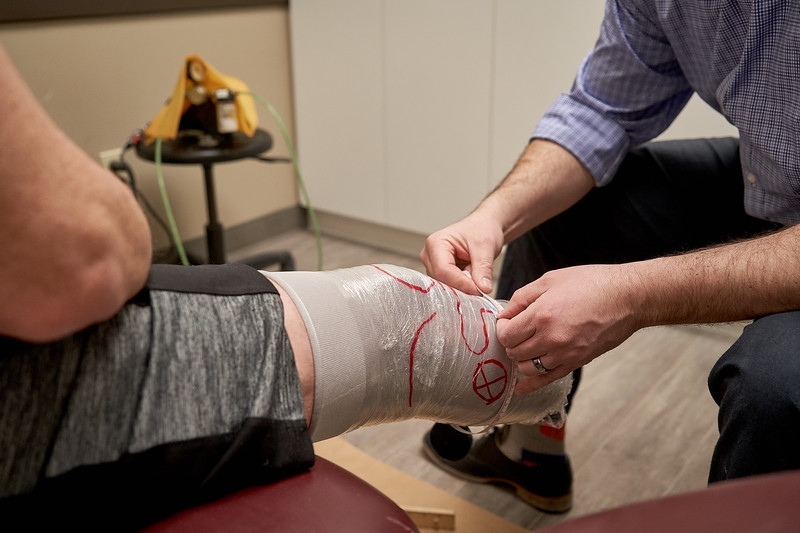Manitoba Orthotics and Prosthetics Association
Certified Prosthetist CP(c)
The role of a Certified Prosthetist CP(c)
A Certified Prosthetist CP(c) is a highly trained healthcare professional, experienced in the design and manufacture of artificial limbs.
They work closely with a team of medical professionals that may include a physician, surgeon, physical and occupational therapist to ensure the best results for each individual. Certified Prosthetists CP(c) are the only health professionals with extensive training, knowledge and understanding of artificial limbs.
The Certified Prosthetist's primary responsibilities are to evaluate, design, fabricate, fit and deliver an artificial limb or prosthesis. They also provide follow-up care once the prosthesis has been delivered. All these services help optimize a patient's functional outcome.
A Certified Prosthetist CP(c) is ethically bound to treat and provide a patient with the prosthetic devices that are appropriate for the patient to achieve independence, safety, comfort and improve function.

Did You Know?
- Certified Prosthetists CP(c) have been credentialed in Canada for over 50 years.
- Only an OPC credentialed prosthetist can use the "Certified Prosthetist CP(c)" title and acronym.
- CP(c) are recognized as authorized providers by most provincial and private health care plans.
- Training to become a CP(c) requires
- A university degree, two years in an accredited post graduate prosthetics and orthotics program, two years of residency under the supervision of a Certified Prosthetist, and successful completion of national written and practical credentialing exams.
A Certified Prosthetist Orthotist CPO(c) has completed a residency in each discipline and has passed both national credentialing exams. These professionals are credentialed to treat individuals with prosthetic and/or orthotic needs.
MOPA is a volunteer run organization comprised of registered and certified P&O professionals in Manitoba.
Contact Us
Copyright © 2026 Manitoba Orthotics and Prosthetics Association. All Rights Reserved.
